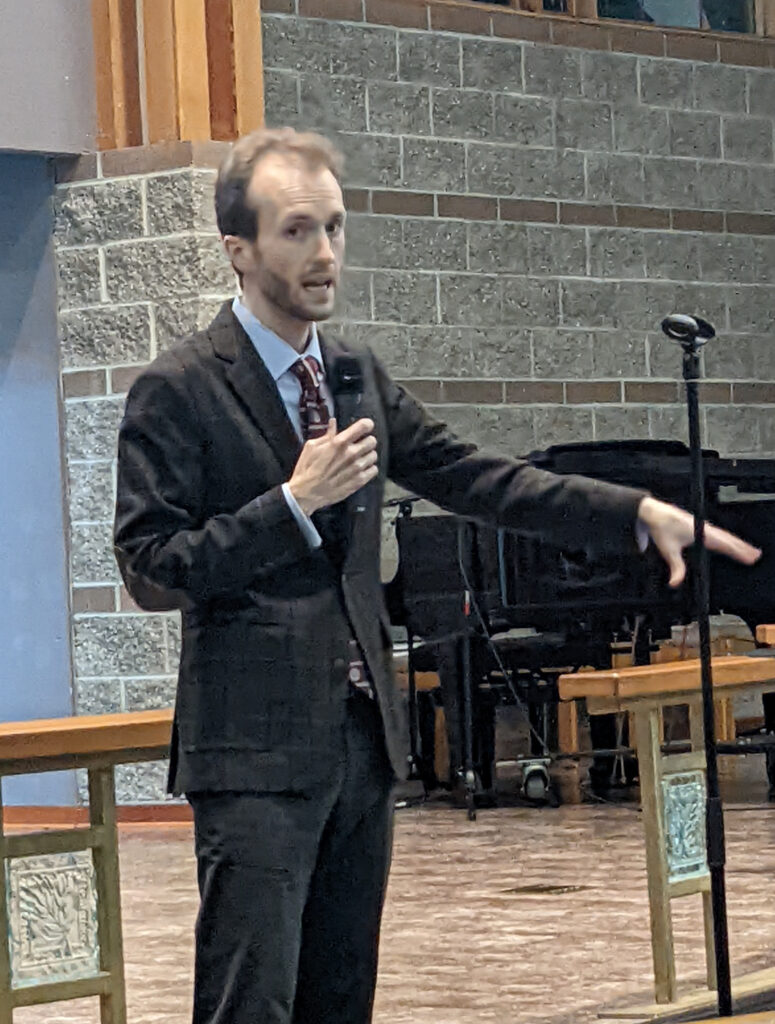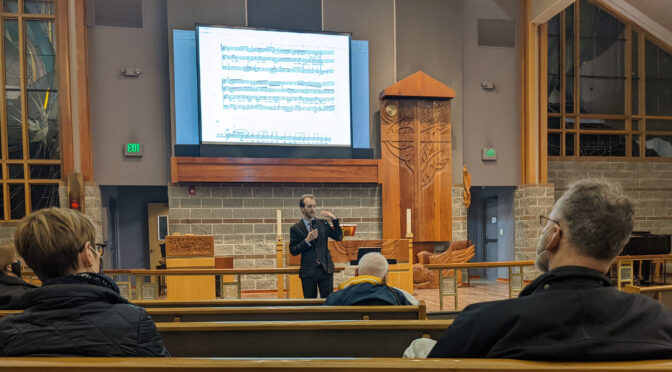On Monday evening, February 21, the Tacoma Chapter sponsored a program on J.S. Bach’s St. Matthew Passion, presented by Seattle conductor and composer, William (Will) White. Will currently serves as music director of Harmonia, a Seattle performing ensemble comprised of a chorus and orchestra. For four seasons, he served as Assistant Conductor of the Cincinnati Symphony Orchestra, and is a frequent pre-concert lecturer for the Seattle Symphony. Will is also a composer, and is one of the commissioned composers for the 2022 AGO National Convention in Seattle. His choral composition will be part of the O Antiphon service at St. Mark’s Cathedral during the convention.

While there are many ways to approach a talk on this monumental opus, White focused on the considerations and challenges facing a conductor when performing this work. For instance, the Matthew Passion calls for two choirs, so there’s a question about the best placement for each choir. J.S. Bach performed his Matthew Passion four times, always on Good Friday. Where might the two choirs have been placed in the Thomaskirche?
There is also the question of whether to use early instruments and tuning (415Hz) or modern instruments and tuning (440Hz). Yet another consideration is whether to use a harpsichord or portative organ, or both, for the continuo parts. (In the case of Harmonia’s upcoming performance of the St. Matthew Passion in March, both will be used, in addition to a theorbo.) Finally, there is the question of how to conduct the recitatives in a way that gives the soloist freedom but gives solid cues to the continuo players.
One example of a stylistic question in the Matthew Passion is whether to observe the fermatas in the chorales as holds, or whether to consider them as lifts, giving the choir an opportunity to breathe but move onto the next phrase of the chorale.
If all this sounds like a bit of a snore, it absolutely wasn’t! Will White made the presentation engaging and interesting, using visual examples of the score and sound examples to illustrate points.
The final conversation of the evening focused on Will’s experience as a composer, including how to compose for the organ when the composer isn’t an organist! The conversation broadened to composing in general, which generated lively questions and discussion from the attendees.
For more information about the upcoming performance, visit the AGO calendar entry.

